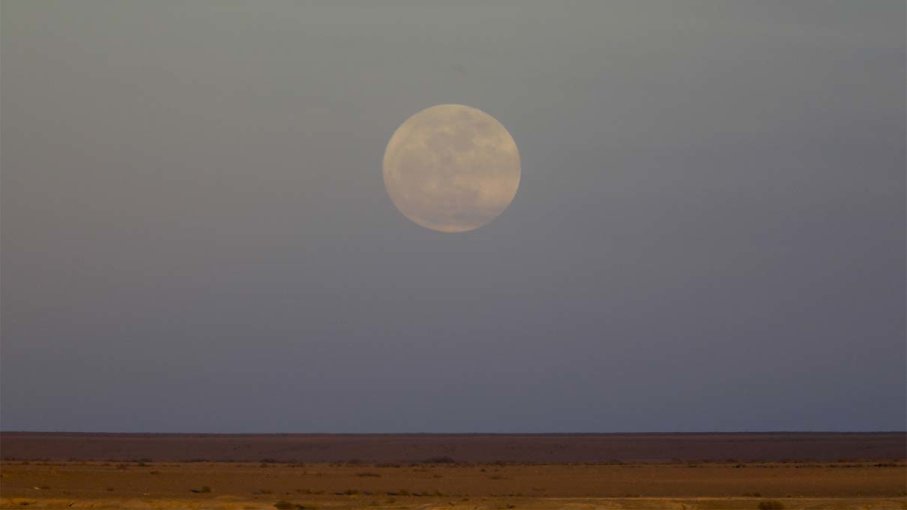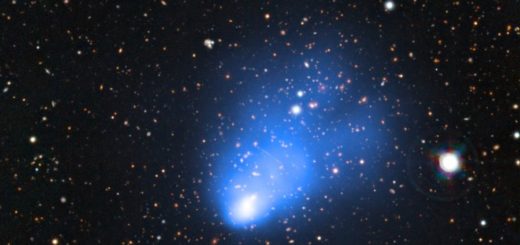The Moon Is Causing Longer Days on Earth

The full moon in Morocco on Jan. 1, 2018. Researchers say days have lengthened from about 18 hours to 24 hours during the last 1.4 billion years because the moon is slowly moving away from Earth. ATHANASIOS GIOUMPASIS/GETTY IMAGES
Sometimes it seems like days are getting longer. Maybe it’s because time stands still when you’re stuck on a work retreat with those kooky cats from accounting. Or perhaps it’s just that the hourglass appears to stop moving when a much needed vacation is around the corner. Even during the winter months when the sun finds little time to make an appearance, it can feel like the hands on the clock are standing still.
It turns out that time actually is slipping by at a slower pace, at least over the last 1.4 billion years. Researchers say days on Earth have expanded from about 18 hours to 24 hours over that time span. That’s because the moon is slowly getting farther away from the planet.
Researchers at the University of Wisconsin-Madison used astrochronology, a statistical method that combines geological observation and astrological theory, to determine that days are stretching slowly. That included looking at climate rhythms — the way hat sunlight is distributed on a planet over time — to determine how quickly the Earth moved on its axis millions of years ago.
As the moon has moved away from Earth, that’s changed the gravitational pull. Earth’s constant spin has slowed in turn. That means it takes longer for the planet to do the 365 daily full turns as it makes its way around the sun each year.
If you’re hoping the slow down means more time to sleep in each morning or a happy hour extension, think again. The days are expanding at a clip of about 1.8 milliseconds per century.
NOW THAT’S INTERESTING



 Creators of mankind
Creators of mankind Description of “Tall white aliens”
Description of “Tall white aliens” Where they came from?
Where they came from? About hostile civilizations
About hostile civilizations The war for the Earth
The war for the Earth “Tall white aliens” about eternal life
“Tall white aliens” about eternal life Video: “Nordic aliens”
Video: “Nordic aliens” Aliens
Aliens Alien encounters
Alien encounters The aliens base
The aliens base UFO
UFO Technology UFO
Technology UFO Underground civilization
Underground civilization Ancient alien artifacts
Ancient alien artifacts Military and UFO
Military and UFO Mysteries and hypotheses
Mysteries and hypotheses Scientific facts
Scientific facts


















